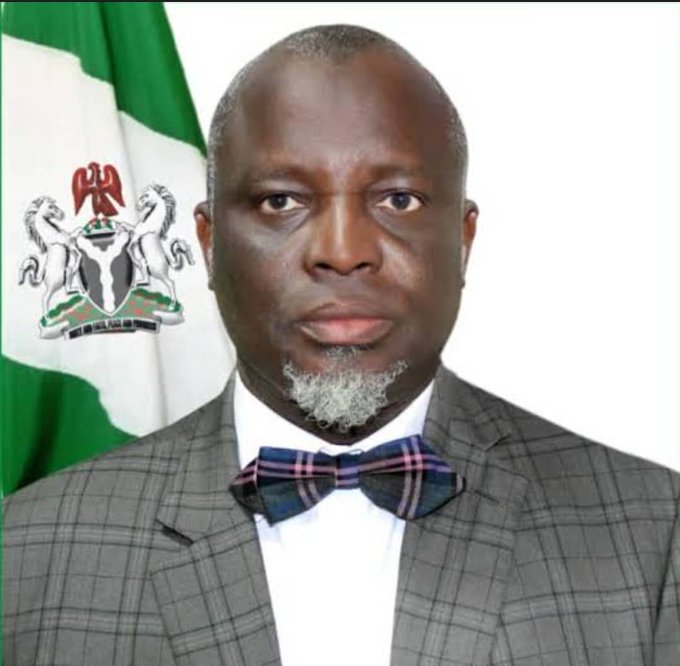The Registrar of the Joint Admissions and Matriculation Board (JAMB), Professor Ishaq Oloyede, on Wednesday broke down in tears as he publicly apologised for the widespread technical issues and irregularities that marred the 2025 Unified Tertiary Matriculation Examination (UTME).
Speaking at an emotionally charged press conference held at JAMB headquarters in Bwari, Abuja, Prof. Oloyede admitted that serious errors had affected the integrity of this year’s examination and left many candidates traumatised.
“I apologise for the trauma caused the candidates,” he said, pausing multiple times to wipe tears from his eyes. “I take full responsibility.”
The press conference followed weeks of mounting criticism, complaints, and confusion over the unusually poor performance recorded in the 2025 UTME, which saw more than 75 per cent of the 1.9 million candidates scoring below 200 out of a maximum of 400 marks.
According to official statistics released by JAMB, over 1.5 million candidates scored less than 200 — a drastic drop compared to previous years. The results triggered widespread protests online and offline, with parents, education stakeholders, and civil society groups calling for explanations from the examination body.
In response to the public outcry, JAMB launched an internal investigation into the causes of the poor performance and numerous complaints of technical hitches during the exam. The investigation uncovered deep-rooted problems at some of the Computer-Based Test (CBT) centres, including what Prof. Oloyede described as “sabotage.”
“The Board discovered that one or two errors were just the tip of the iceberg,” he said. “Our further investigation revealed deeper issues, especially in certain regions. It is an unfortunate case of sabotage in some centres.”
As a result of these findings, JAMB has announced that 379,997 candidates who wrote their exams in affected centres — particularly across Lagos and the five states in the South-East — will be allowed to retake the UTME.
“We have identified 65 centres in Lagos and 92 across the South-East where these technical issues compromised the examination process,” the registrar said. “These candidates will start receiving text messages from tomorrow notifying them of their rescheduled examination dates.”
Oloyede stressed that the decision to conduct a re-sit was not taken lightly but was necessary to ensure fairness, transparency, and the credibility of the nation’s tertiary admission process.
“We cannot allow the actions of a few to destroy the aspirations of hundreds of thousands of innocent students,” he said. “This is about the future of Nigeria. The only thing we can do now is to take responsibility and fix it.”
The Board’s admission of responsibility marks a rare moment of official contrition in Nigeria’s public education system. It also comes at a time when confidence in JAMB has been steadily eroding due to recurring complaints over registration challenges, examination malpractice, and technical malfunctions at CBT centres.
Over the past few years, JAMB had introduced several reforms aimed at curbing malpractice and enhancing the credibility of the UTME. However, the scale of failure recorded in 2025 has raised serious questions about the effectiveness of those reforms and the capacity of the Board to maintain standardised testing nationwide.
The 2025 UTME, held across hundreds of centres nationwide, was designed to be fully digital, relying on computer-based technology to improve accuracy and reduce human interference. But reports of server downtime, incomplete questions, biometric mismatches, and unexplained score discrepancies flooded social media platforms shortly after the exam began.
In one viral post, a student in Enugu claimed her system shut down three times during the exam. Another candidate in Lagos alleged that questions failed to load properly. Many others posted screenshots of inexplicably low results, fuelling allegations that some candidates’ efforts had been wiped out by software glitches or poor internet connectivity.
These complaints prompted some affected candidates and parents to consider legal action against JAMB. At least two legal advocacy groups have said they are exploring options to represent aggrieved students in a class-action suit, a development that could further complicate the Board’s situation.
In an attempt to avoid further escalation, Prof. Oloyede has appealed for understanding and assured the public that corrective measures have been initiated.
“We are not sweeping this under the carpet,” he said. “I have directed our technical and legal teams to fully audit the affected centres, sanction erring operators, and introduce additional safeguards before any future examination.”
JAMB also urged candidates and the general public to ignore any unofficial platforms claiming to offer score upgrades or re-sit opportunities. “We advise everyone to wait for official text messages from JAMB. No candidate should patronise fraudsters,” he warned.
This latest development has sparked mixed reactions nationwide. While some stakeholders have praised Oloyede’s openness and humility, others believe it is time for a deeper review of Nigeria’s reliance on high-stakes centralised exams for university admission.
In a telephone interview, education analyst Dr. Kemi Ogunbiyi said, “This is a wake-up call. JAMB must invest more in independent monitoring and real-time error detection. But beyond that, we must begin to diversify the metrics used for university entry — including continuous assessment, interviews, and internal school performance.”
For now, affected students and their families await further instructions on the re-sit process, while the rest of the country watches how JAMB handles what is arguably the biggest credibility crisis in its history.
The 2025 UTME was originally intended to be a showcase of Nigeria’s progress in digital education administration. Instead, it has ended in national disappointment, tears, and a call for reform.
Still, Prof. Oloyede, who has served as JAMB Registrar since 2016 and is known for his firm stance against corruption, remains optimistic that the institution will bounce back stronger.
“We will restore the confidence of Nigerians,” he said. “We will learn from this mistake and come out better.”

